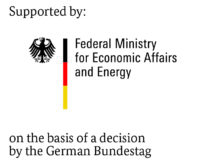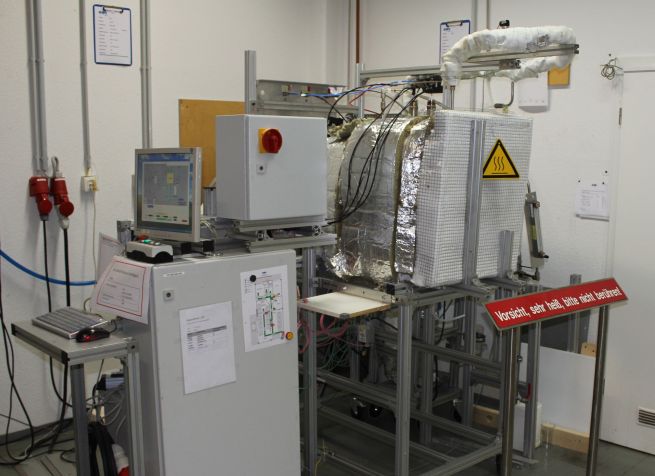Research project towards optimal furnace operation
11 January 2021 – In the future the preventive maintenance of metallic furnace components in industrial furnaces can reduce production losses and lower operating costs. OWI Science for Fuels gGmbH, the Department for Industrial Furnaces and Heat Engineering (IOB) at RWTH Aachen University and the Institute for Materials Science (IfW) at Darmstadt University of Technology intend to contribute to this target in a current research project. Metallic components in industrial furnaces suffer a premature end of their service life especially under changing thermal loads due to failure of the material. This is because both slow and fast temperature cycles accelerate the creep and sometimes also the oxidation of typical high-temperature alloys compared to isothermal loads.
The current research project focuses on radiant tubes as an example of essential and thermally highly stressed components in heat treatment plants. Radiant heating tubes separate the exhaust gas of the heat-releasing combustion from the furnace chamber atmosphere in which the material to be treated is located. As a result of the thermal load, radiant heating tubes sometimes undergo severe creep deformation. If a certain tolerance threshold concerning the deformation is exceeded, the radiant tube must usually be replaced or, if possible, turned by 180°. Such replacement or turning of the radiant tube requires a shutdown of the plant and thus a production stop with corresponding production losses and increased operating costs. Therefore, the current research project focuses on the influence of practice-relevant operating modes of radiant heating tubes on their service life.
As a basis for the intended preventive maintenance, the researchers investigate the behavior of relevant high-temperature alloys under exemplary, practice-relevant load profiles. As a result of the project, recommendations for action in the form of a comprehensive database and an extended calculator for the service life assessment of high-temperature materials under thermal cycling stress will be made available. Thus, different aspects of the operating mode of a plant – such as the on-off cycling of the burners and the change between different operating temperatures – can be optimized with regard to lifetime and energy efficiency and industry 4.0 concepts can be implemented. Outside the industrial furnace construction sector, for example, manufacturers of industrial and small burners, the chemical industry as well as companies in the thermal waste disposal sector can benefit from the results.
The IGF project 21070 N „Untersuchung zum Einfluss flexibler Betriebsweisen von Industrieöfen auf die Lebensdauer metallischer Hochtemperaturkomponenten“ (Investigation of the influence of flexible operating modes of industrial furnaces on the service life of metallic high temperature components) of the Forschungsvereinigung Forschungskuratorium Maschinenbau e. V. – FKM, Lyoner Straße 18, 60528 Frankfurt am Main is funded via the AIF within the framework of the Program for the Promotion of Industrial Community Research (IGF) of the Federal Ministry of Economics and Energy (BMWi) on the basis of a resolution of the German Bundestag.







